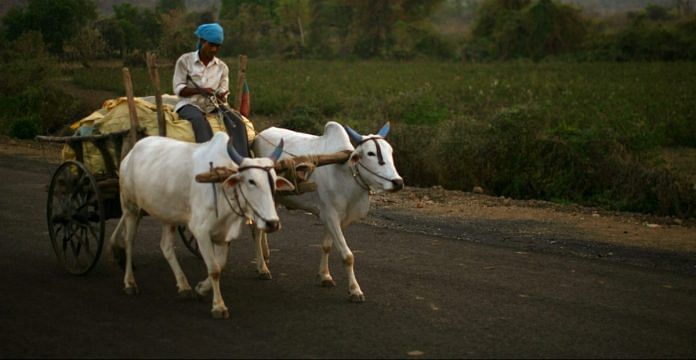Maharashtra Economic Survey says economy is expected to grow at a slower rate of 7.3 per cent in 2017-18 as against 10 per cent last year.
Mumbai: The farm sector in Maharashtra is expected to shrink by 8.3 per cent in the current fiscal after registering a double-digit growth last year, a development that is expected to deepen the political crisis the BJP-led government has been battling over agriculture.
According to the Economic Survey of Maharashtra released Thursday, the state’s economy is expected to grow at a slower rate of 7.3 per cent in 2017-18 as against 10 per cent last year, mainly pulled down by the drop in the agriculture and allied sector.
BJP’s Sudhir Mungantiwar, state finance minister, blamed the drop in agricultural income primarily on insufficient rains, saying last year Maharashtra received 94.9 per cent of the expected rainfall, which helped in a bumper produce and a strong growth in the sector, while this year the rainfall was just 84.3 per cent.
A shrink in the farm sector could bring further trouble for the Devendra Fadnavis government as the opposition often claims that it is not farmer friendly.
“Despite a deficient rainfall, the various schemes that the government has undertaken, such as Jal Yukta Shivar, to increase the moisture in the soil, have ensured that the production was not hit very badly,” Mungantiwar said.
“In 2011-12, the spending on the 37 different heads under agriculture and allied activities was Rs 24,728 crore. We have increased that to Rs 83,184 crore, so I would like to emphatically say that this government is paying special attention to the farm sector,” he added.
The minister, however, said small landholdings continue to be a major challenge and the government will introduce more schemes to encourage group farming and related schemes. The sector is likely to get a special focus when the finance minister announces the state budget Friday.
Political implications
Agriculture in Maharashtra has been a politically significant issue for more than a decade with the first incidents of farmers’ suicides in the country reported from the Vidarbha region, largely dependent on cotton production, in the 1990s.
Even as chief minister Fadnavis strongly made several arguments against the concept of a farm loan waiver, the government had to give in to political pressure by the opposition, joined by ally Shiv Sena, and announce a debt waiver for farmers last year.
The opposition has, however, continued to throw barbs at the BJP-led government, saying it is not farmer friendly, with the number of farmer suicides still high. It has also criticised the government’s response to crises such as deficient rains, hailstorms, destruction of the cotton crop by the pink ball worm and so on.
In the ongoing budget session of the state legislature too, Congress and NCP leaders have continued to criticise the government’s farm loan waiver scheme, saying eligibility barriers and an online application system have made the scheme ineffective.
Meanwhile, nearly 10,000 farmers led by the Left-affiliated All India Kisan Sabha, have started marching towards Mumbai from Nashik with a list of demands including proper compensation for crops destroyed by a recent hailstorm and better implementation of the farm loan waiver scheme.
They plan to reach Vidhan Bhavan and protest there while the legislature is in session, until their demands are met.
Cotton, oilseeds, pulses worst hit
According to the 2017-18 economic survey report, while livestock, forestry and logging as well as fishing and aquaculture are likely to register a small growth this year, it is a 14.4 per cent decline in production of crops that will pull the sector down. This compares with a whopping 22.5 per cent growth in the overall sector last year, supported by a 30.7 per cent jump in crop production.
Data from the Commissionerate of Agriculture, excluding the Mumbai city and suburban districts, shows that 15 of the rest 34 districts in Maharashtra had deficient rainfall as against five last year. Crops such as cotton, oilseeds, pulses and cereals are some of the worst affected.
Cotton production is expected to plunge by a steep 43.8 per cent; the yield of cereals and pulses together across the kharif and rabi seasons is estimated to drop by 22.9 percent, while the production of oilseeds is likely to reduce by 18.1 per cent.
“Deficient rainfall is an important reason for a slowdown in the agriculture sector. Maharashtra has forever been a water-stressed state,” said Sangeeta Shroff, professor at the Gokhale Institute of Politics and Economics in Pune.
“We have very low cropping intensity…But with schemes such as Jal Yukta Shivar, a focus on infrastructure, direct access for farmers to markets and so on, this government seems to be taking steps in the right direction, but it will take time for results to show,” Shroff added.



